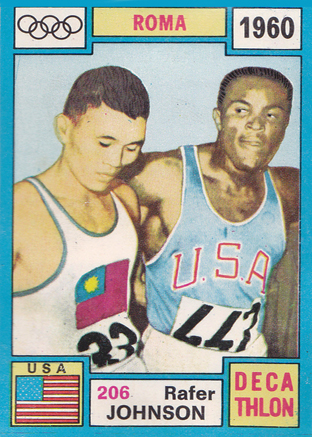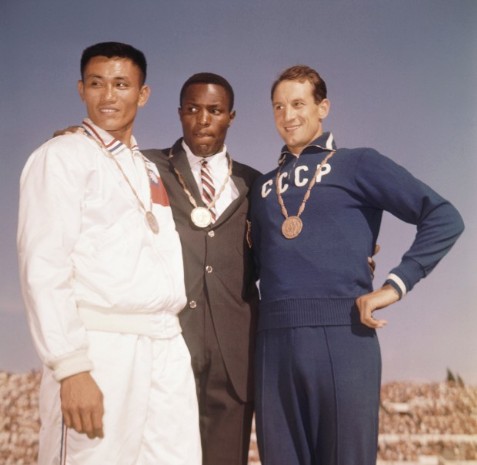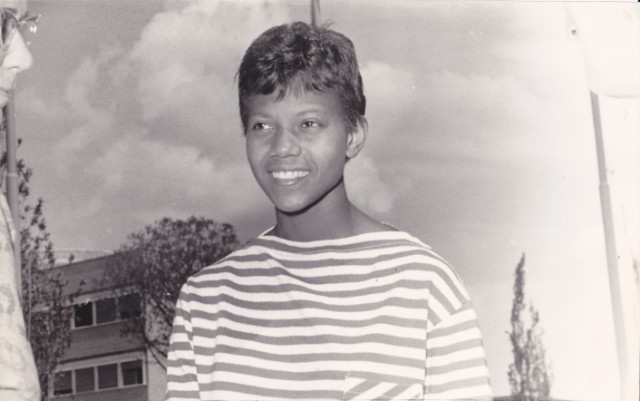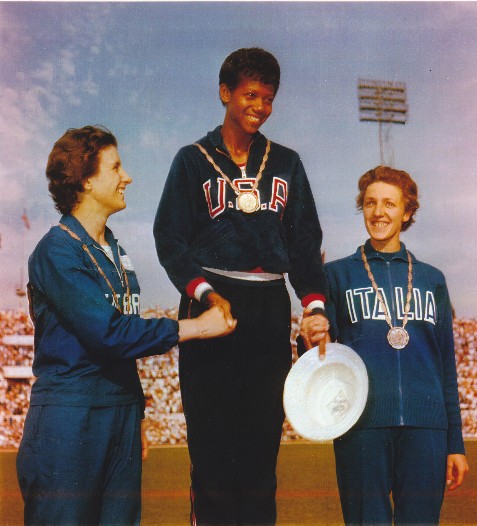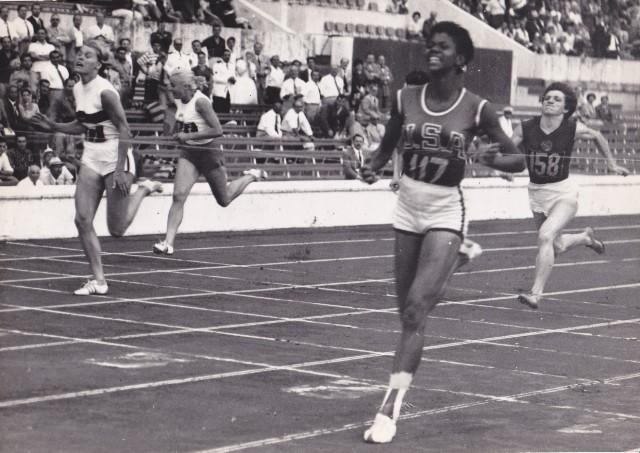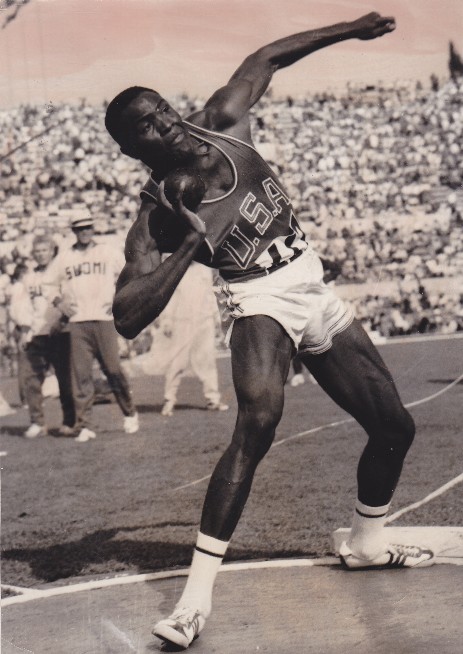Rudolph - Rafer
Era il momento dei 100 metri femminile ed era di scena Wilma Rudolph, la migliore delle velociste americane. Aveva la pettorina 117 ed era l'unica americana delle sei finaliste. Assieme a lei la sovietica Maria Itkina, l'italiana Giusy Leone, la francese Catherine Capdeville e le due inglesi Dorothy Hyman e Jennifer Smart. "Ai vostri posti", "pronti", poi la pistola. La Rudolph partì lenta ma già a metà percorso si stava distendendo con la sua falcata lunga e la sua velocità esplosiva. Nssuna correva come lei, con la sua testa alta; sciolta, leggera, con un passo bellissimo. Tagliò il filo di lana tre falcate e tre decimi di secondo prima della Hyman, seconda d'un soffio sulla Leone. Il tempo era 11 secondi netti, il più veloce di sempre, che demoliva gli 11"4 della Cuthbert a Melbourne e i suoi 11"3 della semifinale. Sarebbe stato record olimpico e record del mondo, ma c'era troppo tempo per omologarlo.
It was time for the women's 100 meters and Wilma Rudolph, the best of the American sprinters, was on the scene. She was wearing bib 117 and was the only American of the six finalists. Along with her were Soviet Maria Itkina, Italy's Giusy Leone, France's Catherine Capdeville and the two Brits, Dorothy Hyman and Jennifer Smart. "On your marks", "ready", then the gunshot. Rudolph started off slow but by the halfway point she was already stretching out with her long stride and explosive speed. Nssone ran like her, with her head held high; loose, light, with a beautiful stride. She crossed the finish line three strides and three tenths of a second before Hyman, who was a close second to Leone. The time was 11 seconds flat, the fastest ever, demolishing Cuthbert's 11"4 in Melbourne and her 11"3 in the semifinals. It would have been an Olympic record and a world record, but there was too much time to validate it.
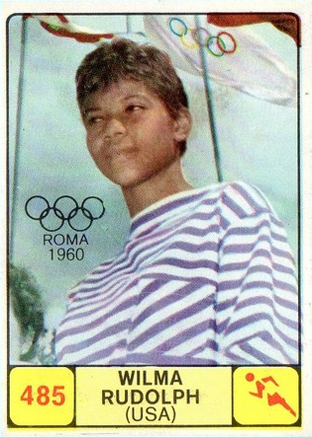
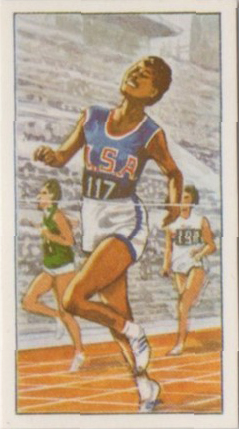
Ed ecco i 200 metri. Prima della gara il tecnico della Rudolph, Ed Temple, aveva un buon presentimento: "Dopo che aveva vinto i 100, ho sentito che aveva ottime probabilità di vincere i 200, perchè come duecentista era anche più forte" disse ai giornalisti. "Riusciva a correre davvero bene in curva, e poi, quando entrava nel rettilineo, poteva stendere le sue gambe lunghe e la sua falcata fluida e....diventava impressionante." Nella finale le venne assegnata la corsia interna, dove la curva è più stretta. Allo sparo dello starter, fu lenta a staccarsi dai blocchi, ma riemerse all'inizio della curva. Quindi si staccò dal gruppo e accrebbe il suo vantaggio a ogni falcata che la portava in dirittura finale. Il tempo non era niente di speciale, 24 secondi, ma la vittoria era storica.
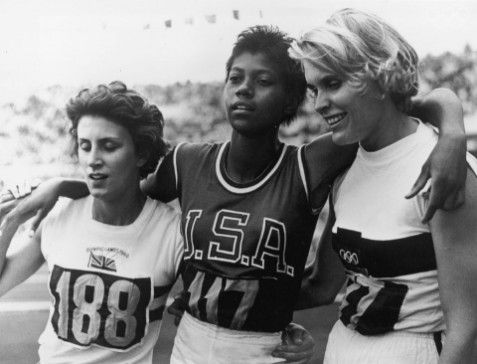
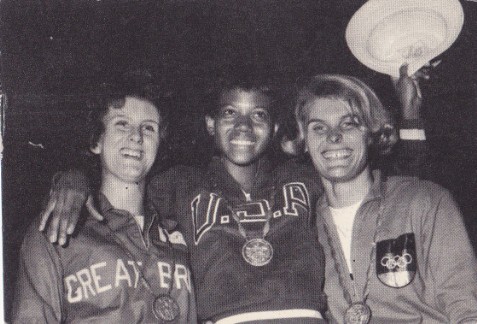
Argento GER Jutta Heine
Bronzo GBR Dorothy Hyman
A Roma, la grande sfida per la conquista dell'oro del Decathlon era tra i due migliori atleti del momento: il formosano Yang Chuan-Kwang ed il capitano e portabandiera della squadra statunitense Rafer Johnson, faceva da terzo incomodo il sovietico Kuznetov, gli altri 27 concorrenti avrebbero fatto da contorno a quella sfida. Il Decathlon è una prova di resistenza, ma che inizia, il 5 settembre, con uno sprint. La prima gara infatti, sono i 100 metri piani, vinta da Yang, che tagliò il filo di lana in 10"7 e conquistò i suoi primi 1034 punti, 86 in più di Johnson.
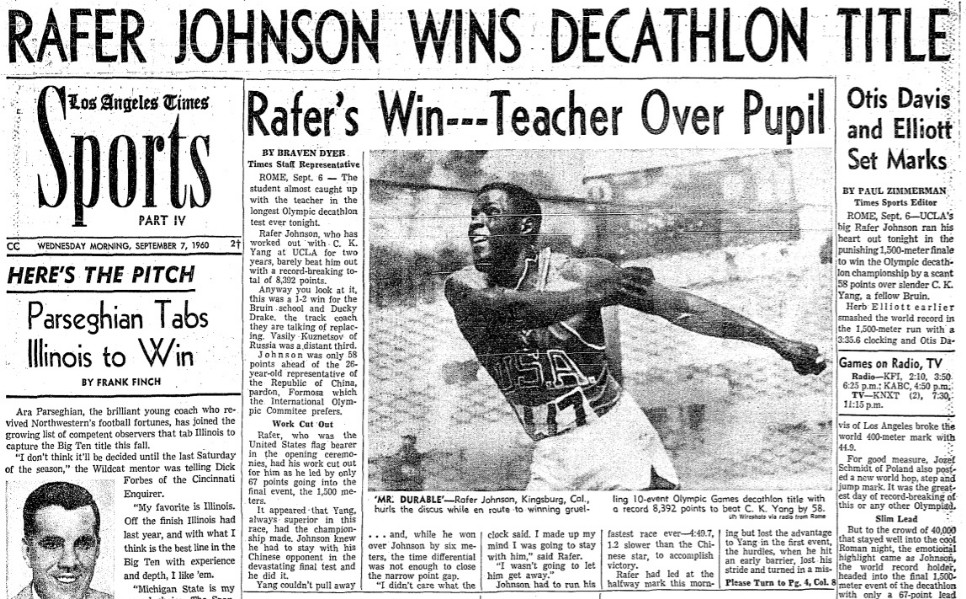
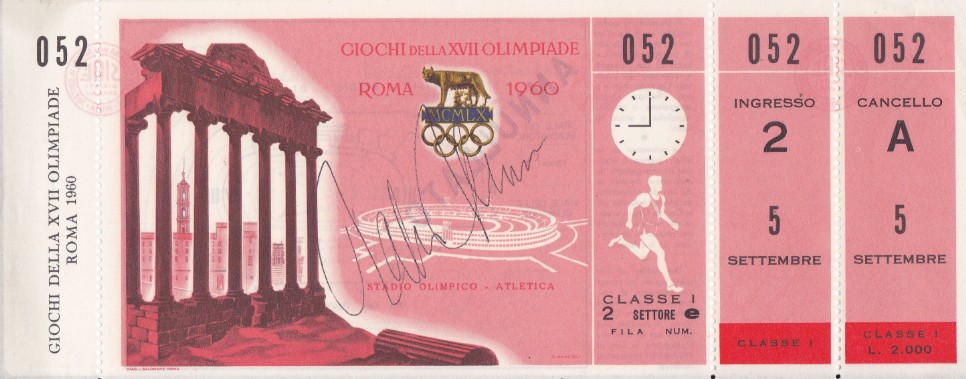
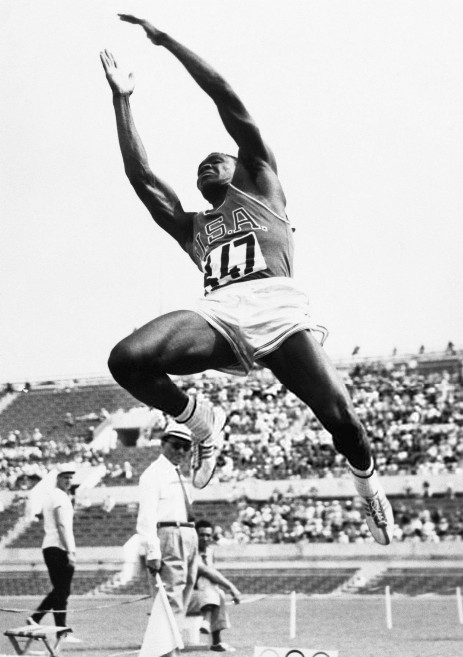
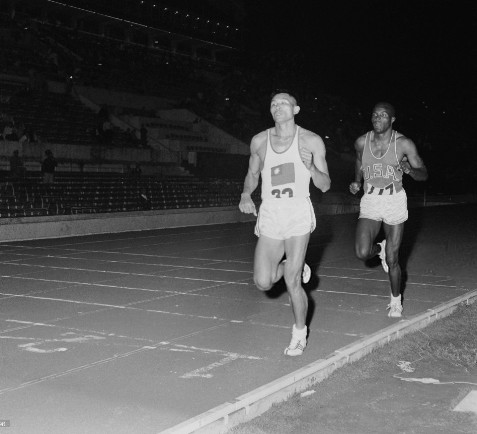
Alle 18.00 i decatleti erano pronti per la quarta prova della giornata: salto in alto. Ma una tempesta si abbattè su Roma, facendo rimandare di oltre un'ora la gara, che alla fine vide Yang saltare il metro e novanta mentre Johnson superava a fatica l'1,85. Ora tra i due il distacco era minimo e bisognava correre i 400 metri, una gara che l'americano non amava e considerava la più dura. A sera ormai inoltrata, su una pista pesante, logori, infreddoliti e sfiniti corsero insieme nella stessa batteria. Johnson partì veloce, Yang lo superò in curva e iniziò a staccarsi, poi Rafer si lanciò in un furioso recupero e nel finale riuscì quasi a riprenderlo. Altri 1005 punti per Yang, ma un buon 950 per Johnson, che conduceva ancora, ma di soli 53 punti.
La mattina del 6 settembre si cominciò con la prova dei 110 ostacoli, dove Yang fu molto più veloce di Johnson, tanto da guadagnare punti sufficienti a portarlo al comando della gara con 128 punti di margine. Ma questo vantaggio durò poco, infatti nella settima prova, il lancio del disco, l'americano lanciò l'attrezzo a 47,85 metri mentre Yang non riuscì a superare i 40 metri. Ora era Johnson in vantaggio e di 144 punti ed aveva davanti a sè, dopo la pausa pranzo, le ultime tre prove: Asta, Giavellotto e 1500.
The morning of September 6 began with the 110 hurdles, where Yang was much faster than Johnson, earning enough points to put him in the lead with a 128-point margin. In the seventh event, the discus throw, the American threw the discus at 47.85 meters while Yang could not exceed 40 meters. Johnson was now ahead by 144 points and had the last three events ahead of him after the lunch break: the Pole Vault, the Javelin and the 1500.
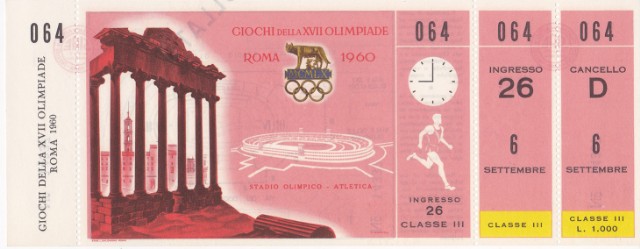
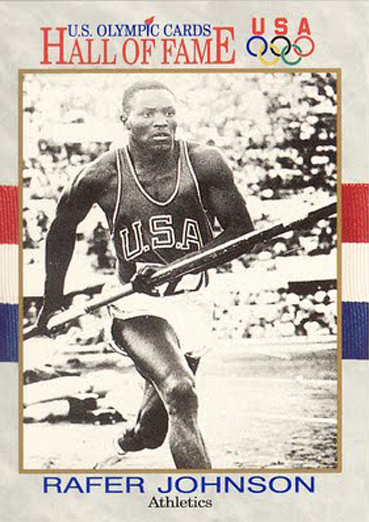
Nel pomeriggio, nella gara del salto in alto, prevalse ancora Yang, che saltò i 4,30 metri mentre Johnson si era fermato a 4,10, ora il distacco era di soli 24 punti. A causa del ritardo di altre gare, la gara del Giavellotto di disputò molto tardi. Era quella la gara dove Johnson poteva dare a Johnson guadagnare tanti punti e prevenire qualsiasi ribaltamento nei 1500 di chiusura, ma si fermò sotto i settanta metri, quasi due metri meglio di Yang, ma non abbastanza da rimanere tranquillo.
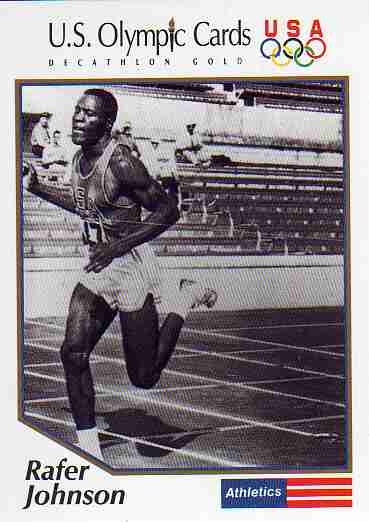
In the afternoon, in the high jump competition, Yang prevailed again, jumping 4.30 meters while Johnson had stopped at 4.10, now the gap was only 24 points. Due to delays in other events, the Javelin was held very late. That was the race where Johnson could give Johnson so many points and prevent any tipping over in the closing 1500, but he stopped under seventy meters, almost two meters better than Yang, but not enough to stay comfortable.

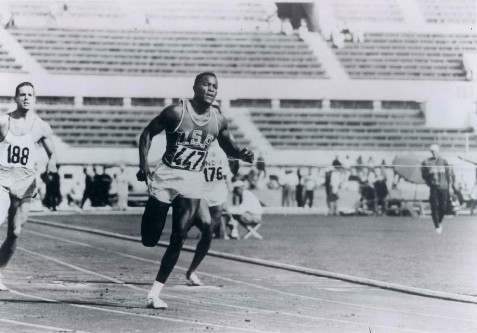
L'ultima gara era quella dei 1500; Johnson aveva 67 punti di vantaggio su Yang. Il destino aveva voluto che fossero stati assegnati alla stessa batteria. Yang per conquistare l'oro doveva distaccare Johnson di almeno 10", ma quest'ultimo disputò la sua migliore gara di sempre su questa distanza, riuscendo ad arrivare alle spalle del suo rivale con un distacco di solo 1",2. Dopo uno scontro spalla a spalla di quattordici ore al giorno, dieci prove, un'umidità sfiancante, i brividi del freddo della sera, i ritardi imposti dalla pioggia, una tensione insopportabile e l'accumulo di 8392 punti (nel conteggio in uso nel 1960), che stabilivano il nuovo record olimpico, Rafer Johnson si aggiudicò la medaglia d'oro del Decathlon, battendo l'atleta della Repubblica di Cina C.K. Yang, suo grande amico ed il sovietico Kuznetsov.
The last race was the 1500; Johnson had a 67-point lead over Yang. As fate would have it, they were assigned to the same battery. In order to win the gold, Yang had to beat Johnson by at least 10", but the latter ran his best race ever over this distance, finishing just 1".2 behind his rival. After a shoulder-to-shoulder battle that lasted fourteen hours a day, ten events, grueling humidity, the chill of the evening, delays imposed by rain, unbearable tension, and the accumulation of 8392 points (in the 1960 count), which set a new Olympic record, Rafer Johnson won the Decathlon gold medal, beating Republic of China athlete C.K. Yang, his close friend, and the Soviet Kuznetsov.
